Tracking what you eat can be such a drag, right? Whether you’re looking to drop a few pounds, gain some muscle, or just figure out why you’re always wiped out, a solid food tracking app can really come in clutch. I’ve messed around with a bunch of them, and let me tell you – some are absolute winners, while others are a total miss. In this article, we’re checking out the best food tracking apps of 2025 – the ones that are super easy, actually do the job, and won’t make you hate your life. Let’s see which one’s your vibe!

1. MyFitnessPal
MyFitnessPal is a well-known app focused on helping users track their food intake and nutritional habits. It features a database with over 14 million foods, covering everything from fresh ingredients to packaged products and restaurant dishes. Users can log meals by manually entering items, scanning barcodes, or importing recipes, with the app calculating calories, macronutrients, and selecting micronutrients like vitamins and minerals. It also syncs with fitness devices and apps to factor in exercise and adjust daily calorie targets accordingly.
The app offers a free version that includes basic tools like a food diary and calorie tracking, while the premium version adds features such as detailed nutrient analysis, barcode scanning, and intermittent fasting support. Its interface provides daily progress updates through charts and summaries, making it easy to see how food and activity align with goals. However, some entries in the database, contributed by users, may vary in accuracy, which can affect reliability for precise tracking.
Key Highlights:
- Database includes over 14 million foods, from groceries to global restaurant options.
- Tracks calories, macronutrients, and select micronutrients like calcium and sodium.
- Integrates with over 50 fitness apps and devices, including Fitbit and Apple Watch.
- Free version covers basic tracking; premium adds barcode scanning and nutrient details.
- Allows saving of recipes and frequent meals for quicker logging.
Who It’s For:
- People wanting to monitor daily calorie intake and nutritional patterns.
- Fitness buffs pairing food logs with exercise data from wearables.
- Users who value convenience with tools like barcode scanning and recipe imports.
- Anyone aiming for weight loss, maintenance, or general health awareness.

2. Lifesum
Lifesum is an app designed to assist users in tracking their food and building healthier eating habits. It includes a database of over one million foods, allowing users to log meals manually or via barcode scanning, while also tracking calories, macronutrients, and water intake. The app provides personalized diet plans based on user goals, offering options like keto, vegan, or high-protein diets, along with recipe suggestions to match.
The free version covers basic food and exercise logging, while the premium subscription unlocks meal plans, detailed macro tracking, and integration with fitness apps like Samsung Health. Daily reports and a “Life Score” feature give users a snapshot of their progress, based on food and activity data. Some users note occasional syncing issues with wearables, and the app’s calorie focus might not adjust for highly active days.
Key Highlights:
- Database with over one million foods, supporting manual and barcode entry.
- Tracks calories, macros, water, and offers diet-specific meal plans.
- Integrates with fitness apps like Fitbit and Garmin for activity tracking.
- Free version includes basic logging; premium adds recipes and macro details.
- Provides a daily “Life Score” to reflect eating and activity habits.
Who It’s For:
- Individuals seeking personalized diet plans for specific lifestyles like keto or vegan.
- People who want to track macros alongside calories and hydration.
- Users looking for recipe ideas to support their nutritional goals.
- Those who enjoy visual progress updates and simple tracking tools.

3. Calorie Counter by Lose It!
Calorie Counter by Lose It! is an app created to help users manage their weight through food and exercise tracking. It features a database with foods, including grocery items, restaurant meals, and user-submitted entries, which can be logged manually or with a barcode scanner. The app sets a daily calorie budget based on user inputs like weight, height, and goals, adjusting it with exercise data when synced with devices.
The free version offers basic tracking of calories and nutrients like carbs, fat, and protein, while the premium version includes advanced features like meal planning and body composition tracking. Verified food items are marked for accuracy, though incomplete entries may lack full nutrient details. The app’s interface allows quick adjustments to serving sizes, making it practical for everyday use.
Key Highlights:
- Tracks calories, macronutrients, and syncs exercise from devices like Fitbit.
- Free version logs food and activity; premium adds meal plans and insights.
- Allows easy serving size adjustments with a swipe feature.
- Includes a community forum for user support and tips.
Who It’s For:
- People focused on weight loss or maintenance with calorie budgeting.
- Users who prefer a large food database with barcode scanning options.
- Individuals syncing activity from fitness trackers for a full picture.
- Those who like tweaking portion sizes and connecting with a community.
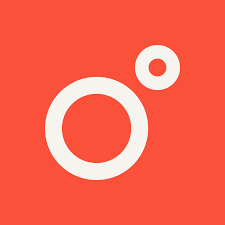
4. Noom
Noom is an app that combines food tracking with a psychology-based approach to weight management. It features a food database where users log meals manually or by searching, with entries color-coded (green, yellow, red) based on calorie density to guide choices. Beyond tracking calories and macronutrients, it offers daily lessons and quizzes to educate users about eating habits and behavior change.
The app requires a subscription after a 14-day trial, providing access to personalized coaching, support groups, and detailed food logging tools. It syncs with some fitness devices like Fitbit for step data, though weight gain goals aren’t supported, and adding custom recipes can be tricky. The focus is on sustainable weight loss through education rather than just calorie counting.
Key Highlights:
- Food database with color-coded system for calorie density guidance.
- Tracks calories and macros, paired with behavioral lessons and quizzes.
- Syncs step data with devices like Fitbit and Garmin.
- Subscription includes one-on-one coaching and group support.
- Emphasizes habit change over restrictive dieting.
Who It’s For:
- People seeking weight loss with a focus on mindset and behavior.
- Users who value coaching and educational content alongside tracking.
- Individuals comfortable with a subscription model for personalized support.
- Those prioritizing sustainable changes over quick calorie fixes.
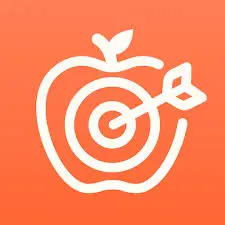
5. Cronometer
Cronometer is an app tailored for detailed nutrition tracking, aimed at users interested in both macro- and micronutrient intake. Its database includes verified foods, allowing logging of calories, up to 84 nutrients, and custom recipes, with manual entry or barcode scanning options. It’s designed to support various diets, from keto to vegan, and integrates with fitness trackers for exercise data.
The free version covers extensive nutrient tracking, while the “Gold” subscription adds features like recipe importing and fasting timers, all ad-free. Users can monitor body measurements, mood, and sleep, though some find the interface less intuitive for extra metrics. The app’s strength lies in its precision, with every food entry reviewed for accuracy.
Key Highlights:
- Verified food database tracking calories and up to 84 nutrients.
- Syncs with devices like Fitbit and Oura for exercise and biometric data.
- Free version offers detailed tracking; Gold adds fasting and recipe tools.
- Supports logging of custom recipes and supplements.
- Includes forums and a Facebook page for user interaction.
Who It’s For:
- Nutrition enthusiasts wanting in-depth macro and micronutrient data.
- Users following specific diets like keto or vegan with precise needs.
- People syncing fitness and sleep data for a holistic view.
- Those who prefer verified food entries over user-generated ones.
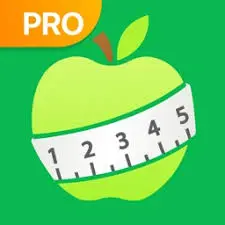
6. Calorie Counter PRO MyNetDiary
Calorie Counter PRO MyNetDiary is a premium version of the MyNetDiary app, focused on detailed food and diet tracking. It offers a database of over 1.7 million verified foods, enabling users to log meals via barcode scanning, AI meal scans, or manual entry, tracking calories, macros, and up to 108 nutrients. The app supports various diet plans, including low-carb and Mediterranean, with recipe options included.
This paid version eliminates ads and provides tools like personalized diet feedback, exercise logging for over 500 activities, and integration with devices like Garmin and Apple Watch. The interface is customizable, showing daily summaries and nutrient breakdowns, though some users report occasional syncing glitches with wearables. It’s built for those seeking a comprehensive tracking experience.
Key Highlights:
- Database of 1.7 million verified foods with AI meal scan and barcode options.
- Tracks calories, macros, and 108 nutrients, plus exercise and water.
- Syncs with fitness devices like Fitbit and Samsung Health.
- Includes premium diets, recipes, and a customizable dashboard.
- Offers community support and dietitian-written articles.
Who It’s For:
- Users wanting detailed nutrient tracking beyond basic calories.
- People following specific diets with tailored recipe needs.
- Fitness fans syncing activity data with food logs.
- Those willing to pay for an ad-free, feature-rich experience.
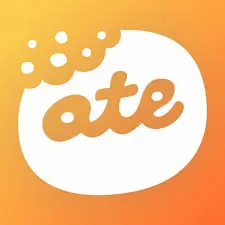
7. Ate Food Diary AI Diet Tracker
Ate Food Diary AI Diet Tracker takes a visual approach to food logging, encouraging users to snap photos of meals rather than manually entering details. It uses AI to analyze images and estimate nutritional content, tracking calories and macros based on what’s photographed. The app also prompts users to reflect on their eating habits, like mood or hunger levels, for a mindful approach.
Key Highlights:
- Photo-based logging with AI estimating calories and macros.
- Tracks eating habits with prompts for mood and hunger reflection.
- Focuses on mindful eating rather than extensive nutrient details.
- No fitness device integration, keeping it food-centric.
Who It’s For:
- People who prefer quick, visual food tracking over manual entry.
- Users interested in mindful eating and habit awareness.
- Those comfortable with a subscription for a simple, AI-driven tool.
- Individuals less focused on exercise or detailed nutrient breakdowns.
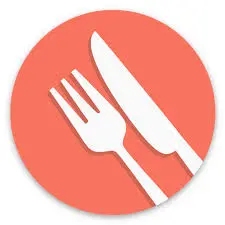
8. MyPlate Calorie Counter
MyPlate Calorie Counter, developed by Livestrong, helps users track food intake with a focus on balanced nutrition. Its database includes a wide range of foods, logged manually or via barcode scanning, tracking calories, macronutrients, and select micronutrients. The app aligns with USDA dietary guidelines, offering personalized goals and recipe suggestions based on user inputs.
The free version provides basic tracking, while the premium subscription adds custom nutrient labels, daily averages, and community forums for support. Users can log exercise and monitor progress with charts, though the process for entering home-cooked meals can be time-consuming. It’s a practical choice for those seeking a straightforward, guideline-based approach.
Key Highlights:
- Food database tracking calories, macros, and some micronutrients.
- Follows USDA guidelines with personalized nutrition goals.
- Free version logs food and exercise; premium adds detailed stats.
- Offers recipes, meal plans, and a community section.
- Includes visual progress charts for daily tracking.
Who It’s For:
- Users wanting a balanced diet aligned with government guidelines.
- People who enjoy community support and recipe ideas.
- Those tracking basic nutrients and exercise with simple tools.
- Individuals looking for a free or affordable tracking option.
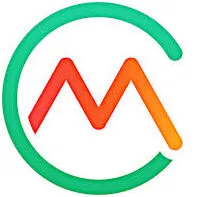
9. Carb Manager Keto Diet Tracker
Carb Manager Keto Diet Tracker is built for users following low-carb or ketogenic diets, with a database of over one million foods. It allows logging via manual entry, barcode scanning, or voice input, focusing on net carbs, calories, and macronutrients. The app provides keto-friendly recipes and meal plans to support dietary adherence.
The free version covers carb and calorie tracking, while the premium subscription adds features like nutrient analysis, fasting tools, and integration with devices like Fitbit. Its interface displays daily macro ratios and progress, though some features require upgrading. It’s tailored for those committed to a specific low-carb lifestyle.
Key Highlights:
- Database of over one million foods, emphasizing net carbs.
- Tracks calories, macros, and offers keto recipes and plans.
- Syncs with fitness devices like Apple Watch and Garmin.
- Free version logs basics; premium includes fasting and nutrient tools.
- Displays macro ratios and daily progress visually.
Who It’s For:
- People on keto or low-carb diets need precise carb tracking.
- Users seeking recipes and meal plans for a specific diet.
- Fitness enthusiasts pairing food logs with device data.
- Those who value voice logging and visual macro breakdowns.
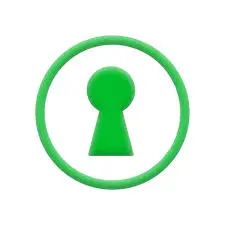
10. FatSecret
FatSecret is a free app designed for tracking food intake and managing diet goals. Its database includes millions of foods, from groceries to restaurant items, logged manually or with a barcode scanner, tracking calories, macronutrients, and net carbs. The app features a diet calendar to visualize eating patterns and integrates with Google Fit for activity data.
There’s no premium version, keeping all features accessible, including image recognition for food logging and a community for sharing tips. Some nutritional data may be user-generated, potentially affecting accuracy, but the app’s simplicity and lack of cost make it widely appealing. It focuses on food over extensive exercise tracking.
Key Highlights:
- Millions of foods in the database, with barcode and image logging.
- Tracks calories, macros, and net carbs, fully free.
- Integrates with Google Fit for basic activity syncing.
- Includes a diet calendar and community support.
- Offers a straightforward, no-cost interface.
Who It’s For:
- Budget-conscious users wanting free, full-featured tracking.
- People focused on food logging over exercise details.
- Low-carb dieters needing net carb insights.
- Those who enjoy visual tools and community interaction.
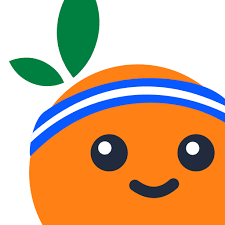
11. Fooducate
Fooducate is an app that emphasizes nutritional quality alongside tracking, with a database of over 300,000 products. Users log meals via barcode scanning or manual entry, tracking calories, macros, and select nutrients, while foods receive letter grades (A to D) based on their healthfulness. It highlights added sugars and sodium to guide better choices.
The free version offers basic tracking and grading, while the premium subscription adds diet-specific tips, like gluten-free or keto, and detailed nutrient breakdowns. It doesn’t sync with fitness devices, focusing instead on food education. The grading system helps users compare options, though some find the database smaller than competitors.
Key Highlights:
- Database of over 300,000 foods with health-based grading.
- Tracks calories, macros, and flags added sugars and sodium.
- Free version logs and grades; premium adds diet tips.
- Focuses on food quality education over exercise tracking.
- Barcode scanning simplifies logging packaged items.
Who It’s For:
- Users prioritizing food quality and nutritional education.
- People tracking basic nutrients without fitness device needs.
- Shoppers wanting to compare products with barcode scans.
- Those following specific diets with premium guidance.
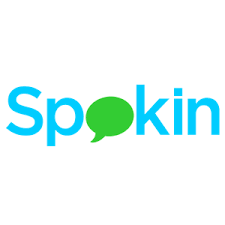
12. Spokin – Manage Food Allergies
Spokin is an app tailored for managing food allergies, with a database focused on allergen-free products and restaurant options. Users can log foods manually or search for safe items, tracking calories and basic nutrients while filtering for allergens like nuts, dairy, or gluten. It’s less about detailed nutrition and more about safety and convenience.
The app is free, offering a community-driven database where users share verified safe foods and reviews. It doesn’t integrate with fitness devices or provide extensive nutrient tracking, keeping the focus on allergy management. The interface is simple, with maps to locate allergy-friendly dining spots.
Key Highlights:
- Database of allergen-free foods and restaurant options.
- Tracks calories and basic nutrients with allergy filters.
- Fully free with a community-sourced food list.
- Includes maps for finding safe dining locations.
- Focuses on safety over comprehensive nutrition.
Who It’s For:
- People with food allergies needing safe eating options.
- Users who value community input on allergen-free foods.
- Those less focused on detailed nutrient or exercise tracking.
- Diners seeking allergy-friendly restaurant guidance.

13. WeightWatchers Program
WeightWatchers Program is an app centered on a points-based system rather than calorie counting, with a database of foods assigned SmartPoints based on nutritional value. Users log meals manually or via barcode scanning, tracking points alongside basic nutrients like protein and sugar. It integrates with fitness devices to adjust daily points based on activity.
The app requires a subscription, offering personalized plans, recipes, and access to workshops or coaching. The free trial introduces the system, but full features like detailed tracking and community support come with payment. It’s designed for structured weight loss, though some find points less intuitive than calories.
Key Highlights:
- Food database with SmartPoints system for tracking.
- Logs basic nutrients and syncs with devices like Fitbit.
- Subscription includes recipes, coaching, and workshops.
- Adjusts points based on exercise data.
- Offers a structured approach to weight management.
Who It’s For:
- People preferring a points system over calorie counting.
- Users seeking structured weight loss with coaching.
- Fitness trackers wanting activity-adjusted goals.
- Those comfortable with a subscription for community support.

14. Fitbit
Fitbit is primarily a fitness tracking app that includes food logging as a secondary feature, tied to its wearable devices. Its database allows manual entry or barcode scanning of meals, tracking calories and macronutrients like carbs, fat, and protein. It calculates daily calorie budgets based on activity data from Fitbit trackers, adjusting for steps and workouts.
The free version offers basic food and exercise tracking, while the premium subscription adds detailed health insights and meal planning tools. The app’s strength is its seamless integration with Fitbit devices, though its food database is less extensive than standalone nutrition apps, and logging can feel secondary to fitness focus.
Key Highlights:
- Food database tracking calories and macronutrients.
- Syncs with Fitbit devices for activity-based calorie adjustments.
- Free version logs basics; premium adds health insights.
- Supports barcode scanning and manual meal entry.
- Focuses on fitness with food tracking as a complement.
Who It’s For:
- Fitbit users wanting to pair food logs with activity data.
- People focused on fitness over detailed nutrition analysis.
- Users seeking a free or premium option with device integration.
- Those who prefer a simple food tracking add-on.
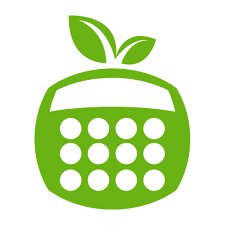
15. Nutritionix Track
Nutritionix Track is an app designed for straightforward food logging, with a database of over 800,000 foods, including restaurant and grocery items. Users can log meals manually, via barcode scanning, or voice input, tracking calories, macronutrients, and select micronutrients. It’s built for ease, with a clean interface showing daily totals.
The app is free with optional in-app purchases for advanced features like custom food creation, and it integrates with some fitness apps for activity data. Its database is curated by dietitians, ensuring accuracy, though it lacks the extensive nutrient tracking of some competitors. It’s a solid choice for basic, no-frills logging.
Key Highlights:
- Database of over 800,000 foods, curated by dietitians.
- Tracks calories, macros, and some micronutrients.
- Free with voice logging and barcode scanning options.
- Integrates with select fitness apps for activity.
- Simple interface focused on daily food totals.
Who It’s For:
- Users wanting a free, easy-to-use food tracker.
- People who prefer voice or barcode logging for speed.
- Those tracking basic nutrients without complex needs.
- Individuals seeking a dietitian-verified database.
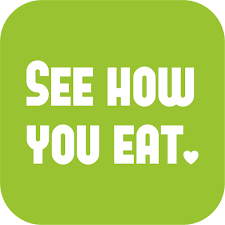
16. Food Diary See How You Eat App
Food Diary See How You Eat App is a photo-based tracking tool that encourages users to document meals visually. Instead of detailed nutrient logging, it focuses on capturing eating patterns through pictures, with optional notes on calories or macros. The app aims to build awareness of habits rather than precise tracking.
It offers a free version with basic photo logging, while the premium subscription adds features like meal reminders and exportable diaries. There’s no fitness device integration or extensive database, keeping it minimalistic. It’s ideal for those who find traditional logging tedious and prefer a visual approach.
Key Highlights:
- Photo-based logging to track eating patterns.
- Optional calorie and macro notes with each entry.
- Free version covers basics; premium adds reminders.
- No fitness syncing, focusing solely on food visuals.
- Simple design for quick, reflective logging.
Who It’s For:
- People who enjoy visual tracking over detailed data.
- Users building awareness of eating habits simply.
- Those who find manual nutrient logging overwhelming.
- Individuals wanting a free or low-cost, minimal tool.
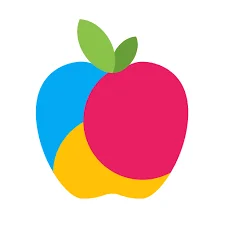
17. YAZIO Calorie Counter & Diet
YAZIO Calorie Counter & Diet helps users track food intake with a database of over two million foods, logged manually or via barcode scanning. It tracks calories, macronutrients, and offers personalized meal plans for diets like keto or fasting, with recipes included. The app adjusts calorie goals based on user activity when synced with devices.
The free version provides basic tracking, while the pro subscription adds fasting timers, detailed nutrient analysis, and more recipes. Its interface shows daily progress and macro breakdowns, though some features require upgrading. It’s a versatile option for diet-focused tracking with a clean design.
Key Highlights:
- Database of over two million foods with barcode scanning.
- Tracks calories, macros, and supports diet plans.
- Syncs with devices like Fitbit for activity adjustments.
- Free version logs basics; pro adds fasting and nutrients.
- Includes recipes and visual progress tracking.
Who It’s For:
- Users on specific diets needing meal plan support.
- People tracking macros and calories with device sync.
- Those who enjoy recipe ideas and fasting tools.
- Individuals seeking a free or pro option with flexibility.
Conclusion
Finding the best food tracking app really comes down to what fits your lifestyle and goals. Whether you’re looking to lose weight, eat healthier, or simply become more mindful of your eating habits, there’s an app out there that can help you do just that. The right app can make tracking your meals feel effortless, give you insights into your nutrition, and even help you stay motivated.
Ultimately, the best food tracking app is the one that feels natural to use, helps you stay on track, and makes your food journey enjoyable. So, explore a few options, give them a try, and see which one clicks with you. After all, it’s all about making small, consistent changes that lead to a healthier you!
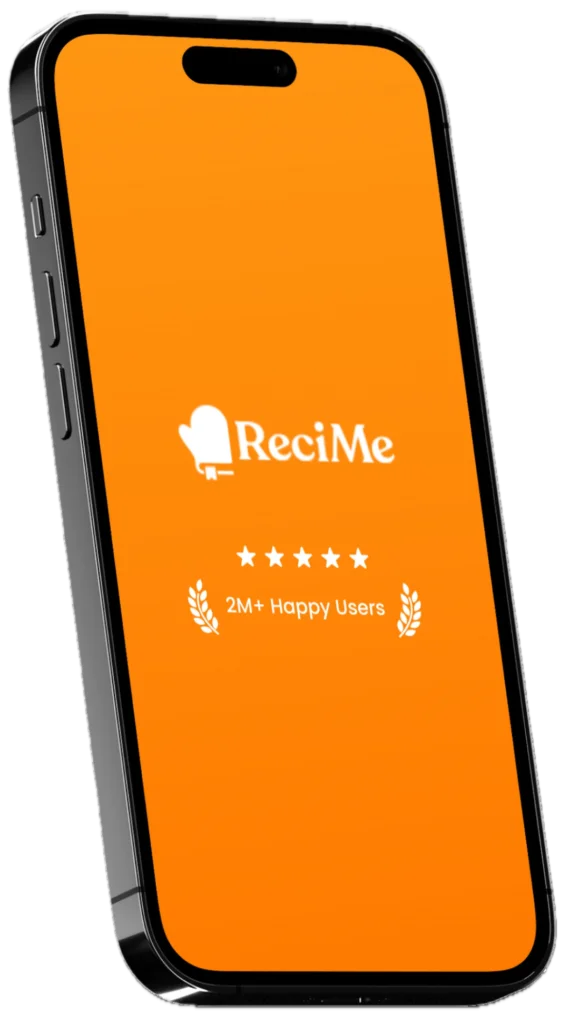
Leave a Reply